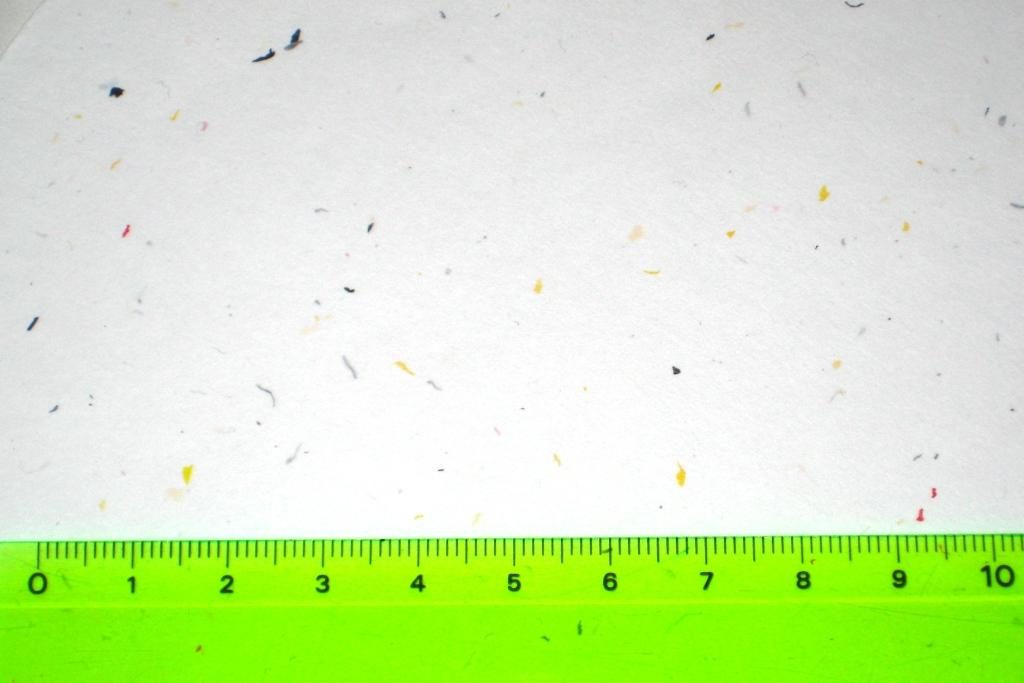In an “Information to Printers” HP together with other associations of the graphic and recycling industry admits, that “the constantly increasing presence of printing waste containing this type of ink (…) even in small quantities and/or in a diffuse manner, has led to difficulties during the deinking process (…), disrupting the recycling of this waste in the graphic sector and for certain packaging uses“.
This is why “COPACEL, FEDEREC, UNIIC and HP call on printers to implement a separate collection of waste and scrap from HP Indigo technology prints“.
Position paper by COPACEL, FEDEREC, UNIIC, and HP (pdf, English)
COPACEL is the Association of French Paper Industries (Union Française des Industries des Cartons, Papiers et Celluloses). On the COPACEL website, you can also find the position paper in French.
FEDEREC is the French Federation of Recycling Enterprises (Fédération Professionnelle des Entreprises du Recyclage). Founded in 1945, FEDEREC federates 1300 members with activities in the collection, sorting, the valuation of industrial and household waste or the trading/brokerage of recycling raw materials.
UNIIC is the National Association of Printing and Communication Industries (Union Nationale des Industries de l’Impression et de la Communication).
« Il est impératif de mettre en oeuvre une collecte séparée des déchets et chutes issus des impressions utilisant la technologie HP Indigo »
Interview with Matthieu Prevost – Responsable Environnement UNIIC et animateur national de la marque Imprim’Vert (in French) in “Acteurs de la Filière Graphique 122“, available on the website of UNIIC.

More about the problems that Indigo prints create in the deinking process in INGEDE’s press release of November 2010
HP’s T350 Inkjet Webpress: Printing ten million books per year at Clausen & Bosse near Hamburg since 2011 in b/w, since 2014 with another “CPI Quantum” also in four colours (Image: HP)
The Amsterdam based Circle Media Group (CMG) end of July announced to take over the printing business of Europe’s largest book printer CPI.
CPI, founded in 1996 and based in Paris, has revenues of €360 million, 2,500 employees, and 16 factories spread out over 5 countries (France, the UK, Germany, Spain, and Czech Republic). As one of Europe’s largest book printers with a history that goes back to 1713, it produces over 400 million books per year.
Circle Media Group has 2,700 employees and revenues of €550 million. With the acquisition of CPI, Circle Media Group will have combined pro-forma annual sales of €900 million and more than 5,000 employees, making it the largest independent European group in the delivery of print and media capabilities. The group will have 26 printing sites in 10 European countries as well as an operation in the US, 135 printing presses of which 29 are digital and will process more than 1 million tonnes of paper a year. The group acquired the Roto Smeets Group last year and the recently Corelio Printing in Belgium.
CPI is among the first printers using large-scale inkjet web-fed presses by HP to print books. Nine presses have been installed; e. g. at Clausen & Bosse near Hamburg the first monochrome inkjetter came in 2011, followed in 2014 by a four-colour machine (Inkjet Webpress), printing millions of books per year.
“Respect people and the environment”
Environmental statements are limited on CPI’s Website, just some basic commitments like “We operate production processes that respect people and the environment”, but no reference to problems with undeinkable inkjet prints. It seems that even mentioning HP as a supplier is avoided by re-naming the combination of a HP Inkjet Webpress together with folding technology by manroland as “CPI Quantum”, to perform “digital book printing in an industrial scale”. According to Markus Dockhorn, Technical Director with Piper Books in Munich, “all print runs between 2.000 and 800 copies go completely to the Quantum“ (cpi-print.de).
At Ebner & Spiegel, one of the largest German book printers, among others the German edition of Harry Potter was printed as well as one of the most controversial German print products lately, the German translation of the Quran by a notorious Salafi preacher.
(Sources: Press release by CMG, Wikipedia, DIE WELT)
Theme: Illdy. © Copyright INGEDE 2024. All Rights Reserved. All pictures copyrighted.
